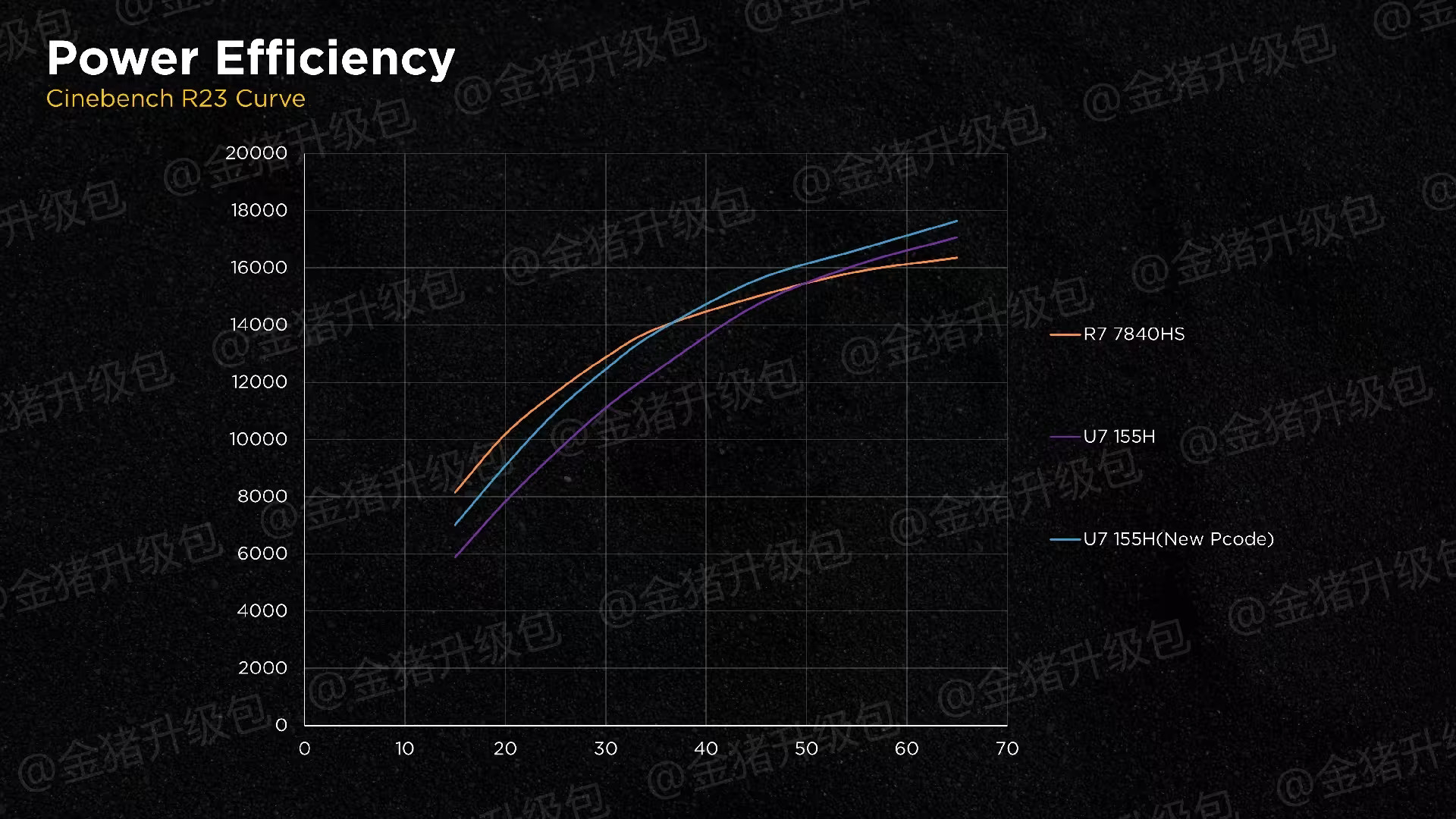Early adopters of laptops featuring Intel’s new Core Ultra laptop processors have enjoyed noticeable performance and efficiency improvements after a simple BIOS update. Golden Pig Upgrade and UltrabookReview were among the first to get their hands on a Meteor Lake-based laptop and their separate testing suggests there are double-digit performance gains to be had from updating from the earliest firmware versions.
The aforementioned reviewers independently confirmed a certain issue with the CPU power delivery, resulting in lower performance during tests. UltrabookReview’s Andrei Girbea shared an HWiNFO log indicating that the CPU power draw wasn’t enough to perform at its full potential. Golden Pig Upgrade made the same conclusion independently in his review.
Shortly after some early tests and reviews had been published, Intel sent a firmware patch to OEMs who subsequently rolled out new BIOS files to reviewers. Both reviewers mentioned above have already completed some re-tests and concluded that the new BIOS fixes the noted issues, facilitating better benchmark results.
The performance improvements observed

Golden Pig identified the issue with the Core Ultra 7 155H CPU and mentions in the comments section of his video that there was a power scheduling problem that reduced the CPU performance while benchmarking. Intel’s freshly patched BIOS was observed to correct this issue via an updated PCode. You can see an informative analysis and before / after BIOS update comparison of the Core Ultra 7 155H from Golden Pig Upgrade, above.
UltrabookReview’s Girbea also received the patched BIOS and updated his review with the new results, which you can check out below.
In the comments of his review, Girbea said that his Zenbook 14 was shipped with BIOS 201. After the review, he received the BIOS 203 from Asus and retested it, showing many improvements during benchmarking. He stress-tested the notebook with Cinebench R23 while recording data with HWiNFO. The logs show that the Core Ultra 155H CPU with the updated BIOS drew a 50-watt peak during the 10-minute benchmark loop.
During its best run in Performance Mode, CPU power draw was around 35 watts and gradually dropped to 28 watts after 5-6 minutes. The temperature was around the higher end of 70 degrees Celsius while maintaining 40dB fan noise levels. The Cinebench R23’s result showed a 12.26% improvement, achieving a score of 13873 points.
All in a day’s work with pre-production samples
Usually, companies like Intel and AMD provide platform-optimized BIOS files for OEMs to roll out with. However, pre-production models may still need to be ironed out after being received by the reviewers. Intel identified the issue after the review was posted and rolled out a patch to respective OEMs who provided the BIOS to the reviewers testing these Meteor Lake notebooks.
Speaking of pre-production review unit woes, Girbea mentioned an existing issue where XeSS didn’t work where it should while testing certain games under certain settings and hence will update the review once more, when he finds the cause of this.
The notebook reviewed by Girbea was an Asus Zenbook 14 OLED UX3405MA with an Intel Evo-certified Core Ultra 155H CPU and Intel Arc iGPU, it featured 32GB LPDDR5-7500 memory and a 1TB PCIe 4.0 SSD. A model with this specification can be ordered for $1,299.99 with a one-year warranty.






